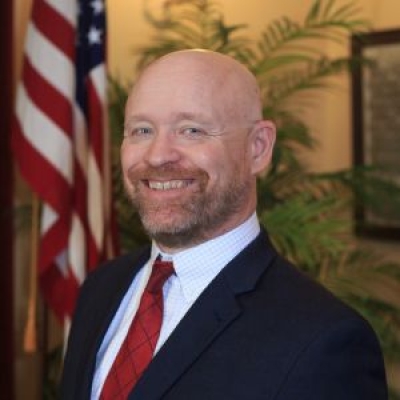On October 7, 2015, the Ohio legislature overwhelmingly passed House Bill 2 (HB 2). The bill significantly strengthens the accountability structures that govern Ohio’s charter sector without compromising the school level autonomy that is critical to the charter school model. If implemented with fidelity, the bill’s provisions hold the promise of dramatically improving the educational outcomes for the 120,000 students who attend more than 350 Ohio charter schools. This landmark reform legislation has had months of public hearings and debate, and it won bi-partisan support in both the Senate and the House. The key areas of reform are as follows:
1. Strengthening State Oversight of Sponsors[1]
As the entities responsible for opening schools and holding them accountable for performance, sponsors are the gatekeepers of overall charter-sector quality. HB 2 ensures that only high-quality sponsors are allowed to authorize schools by requiring sponsors to obtain state approval before sponsoring schools and by strengthening the sponsor-evaluation system.
A. State approval of sponsors
- Requires all new and existing sponsors (except two[2]) to enter into a contract with ODE in order to sponsor schools.
- Requires such contracts to include stipulations on when ODE can intervene or revoke sponsoring authority.
- Establishes a clearer contract renewal process between ODE and a sponsor, and requires the basis of renewal to be academic performance, adherence to quality practices, and compliance with law.
- Requires ODE to publicly post sponsorship applications, along with documentation of rationale for approving or denying an application.
B. Sponsor evaluations
- Clarifies procedures around the sponsor-evaluation system, which applies to all sponsors. ODE must assign an overall sponsor rating annually, based on three components: (1) academic performance of sponsored schools; (2) compliance with state laws and regulations; and (3) adherence to quality sponsorship practices.
- Establishes a fourth rating category, Poor. The rating categories are now: Exemplary, Effective, Ineffective, and Poor.
- Prohibits sponsors rated Ineffective from sponsoring additional schools, while subjecting the sponsor to an improvement plan established by ODE.
- Revokes the sponsorship authority of a sponsor rated Poor, subject to confirmation by the State Board of Education.
- Provides incentives for sponsors rated Exemplary for two consecutive years, including a longer contract with ODE, greater flexibility on sponsors’ contracts with governing boards, and an exemption from preliminary agreements and other deadlines.
2. Advancing Quality Sponsorship Practices
In addition to bolstering Ohio’s oversight of sponsors, HB 2 advances quality sponsorship practices. The bill eliminates incentives that undermine best practices, and it clarifies the role and responsibilities of sponsors. Importantly, HB 2 also ensures that low-performing schools cannot escape accountability when sponsors do the right thing by, when necessary, imposing sanctions (including probation, suspension, and up to termination or non-renewal of a contract).
A. Best practices
- Eliminates sponsor’s ability to sell goods or services to the schools they sponsor, unless the sponsor is a school district or public university.
- Increases the likelihood that sponsorship fees are used for sponsorship purposes by requiring public disclosure of how such fees are spent (and ties disclosure requirements to sponsor evaluations).[3]
- Clarifies that sponsors are responsible for the oversight of the school, and enumerates the specific responsibilities of the sponsor.
- Requires sponsorship contracts with governing boards to include: (1) performance standards that include state report card measures; and (2) details about school facilities, including their costs and a disclosure of the lender or landlord (and whether any relationship with an operator exists).
- Requires a sponsor to communicate with the Auditor of State regarding any audit of a school’s financial or enrollment records.
B. School accountability
- Prohibits “sponsor hopping” by ensuring that low-performing charter schools cannot change sponsors, unless the school: finds an “effective” or better sponsor, hasn’t requested to switch sponsors before, and gains approval from ODE. An appeal can be made to the State Board of Education if ODE denies the sponsor change request.
- Prohibits a school whose contract is non-renewed or terminated for fiscal or academic reasons from seeking another sponsor (i.e., requires closure).
- Strengthens ODE’s ability to deny direct sponsorship of a school, and eliminates the appeal process of a denied school.
- Clarifies a sponsor’s authority to non-renew or terminate contracts and that such decisions are not subject to the criteria of the state’s automatic closure law.
3. Empowering Charter Governing Boards
Governing boards enter into contracts with a sponsor and with an operator (if they choose), and they have the direct responsibility of overseeing school administration. HB 2 helps to ensure that governing boards are truly independent of both their sponsor and their operator, raises the standards for board membership, and increases transparency.
A. Board independence
- Eliminates the ability for an operator to appeal to a sponsor when a board fires it.
- Requires each board to hire an independent fiscal officer, unless its sponsor waives this requirement.
- Requires boards to retain independent legal counsel when entering into contracts with a sponsor or operator.
- Requires boards to adopt the budget for a school (reiterates that budgeting cannot be delegated to an operator).
- Requires contracts with an operator to include a section spelling out who owns the facilities and property and provides that all personal property should belong to the school and not the operator.
- Prohibits board membership of district or ESC employees, if sponsored by either.
- Prohibits district board members from joining a charter board.
B. Ethics and transparency
- Reduces the maximum compensation for board service from $425/meeting to $125/meeting to match compensation structure of district boards.
- Requires disclosure of board members on school websites.
- Requires board members to complete an annual conflict of interest statement.
- Requires criminal background checks for charter school board members.
- Requires board members and school administrative staff to participate in annual trainings on public-records and open meetings laws.
4. Increasing Operator Transparency
Roughly half of Ohio’s charter schools are operated by a management company (either non-profit or for-profit entities). HB 2 greatly enhances the transparency around operators, including disclosure of their academic and financial performance, and it also addresses several matters in Ohio e-school law (some of the largest management companies operate large e-schools).
A. Operator transparency
- Requires a detailed financial accounting of operator expenses when it receives more than 20 percent of a school’s annual gross revenues.
- Requires ODE to publish a directory of operators and an annual report on operator performance.
- Prohibits an operator from leasing real property to a charter school that it contracts with unless an independent real estate professional deems that the lease is commercially reasonable.
- Provides that all moneys loaned by an operator to a school be accounted for, documented, and bear interest at fair market value.
- Requires public posting of charter board/operator contracts.
B. E-schools
- Requires compliance with iNACOL operating standards (and clarifies that sponsors must monitor compliance).
- Ensures that e-schools are keeping accurate records of student participation in online courses.
- Requires e-schools to offer student orientation prior to enrollment.
- Requires e-schools to communicate with parents when students are not performing well in online courses.
5. Miscellaneous Provisions
- Requires ODE to study the California Similar Students Measure and report its recommendations to the legislature and State Board of Education.
- Clarifies that ODE will assume immediate sponsorship of schools whose sponsor has been closed; ODE may continue to sponsor such schools for up to two years.
- Allows schools to merge, without having to distribute assets (as if one school had closed), provided the sponsor of the school is rated Effective or above.
- Prohibits ODE from directly sponsoring schools in Cleveland without a recommendation from the Cleveland Transformation Alliance.
[1] In Ohio, authorizers are referred to as “sponsors,” charter schools are known as “community schools,” and management companies are called operators. This document uses the terms “sponsor,” “charter,” and “operator.”
[2] If the overall rating of the two exempt sponsors is less than Effective for two consecutive years, they must enter into a contract with ODE.
[3] Under continuing law, sponsors may charge a fee of up to 3 percent of their schools’ funding.




